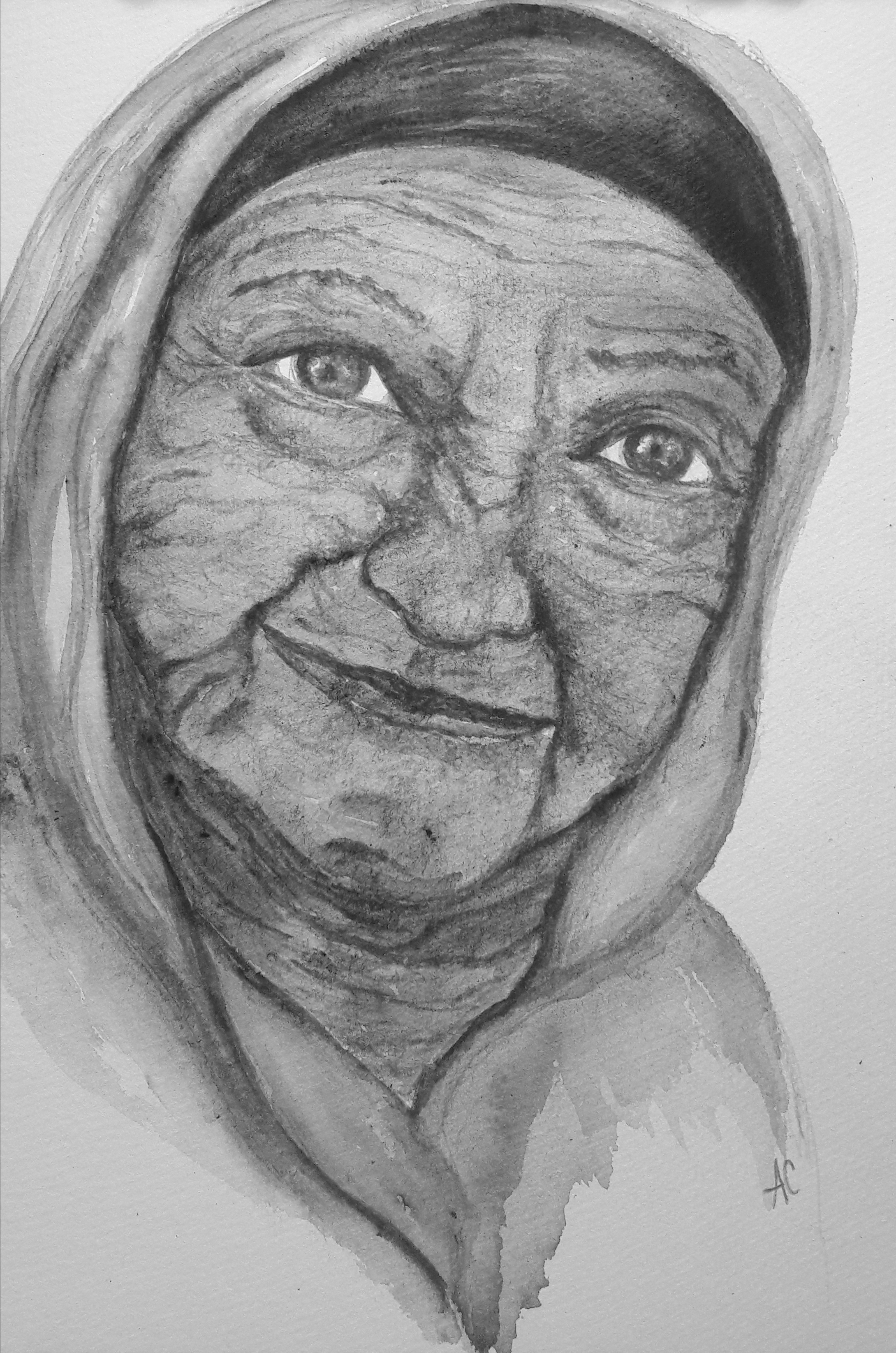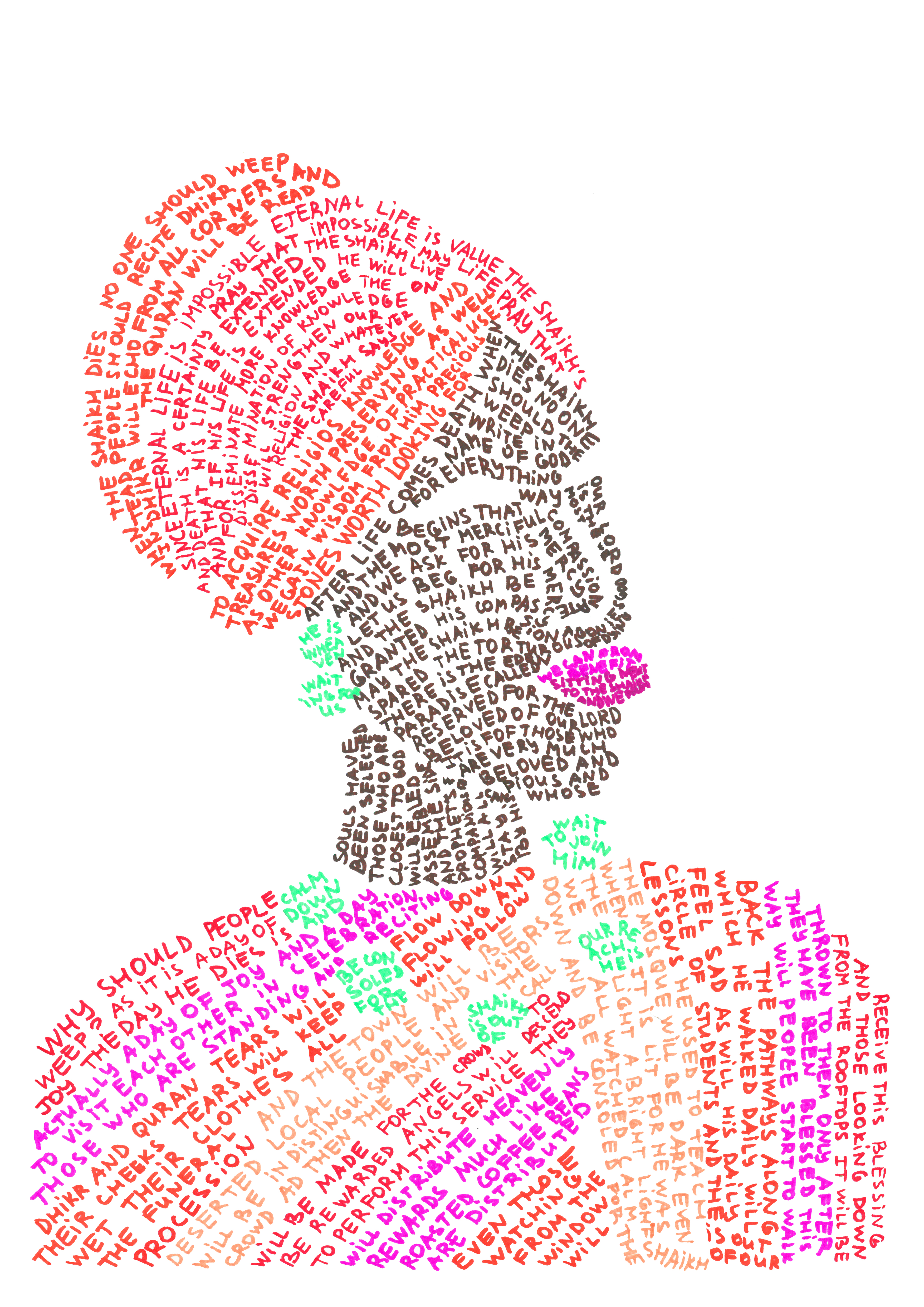Dada Masiti – Expanding Her Traditional Duties
Thinking about Somalia, literature might not be the first thing that comes to mind, but unbeknownst to many, Somalia is a country of bards and poets. This is the story of one of them.
Mana Sitti Habib Jamaladdin was born around 1810 in the city of Brava on the southern coast of Somalia to a family that took pride in the fact that they were part of the Ashraf clan, direct descendants of the Muslim prophet Muhammad. As the Somali people follow an oral tradition of storytelling, there are a lot of uncertainties regarding her life. Though it is confirmed that she was abducted as a child and taken to Zanzibar where she lived in slavery, opinions differ on how exactly this happened.
One source says, she was kidnapped and sold, while another states that the kidnapping was voluntary so she could marry a suitor her family had turned down. They were said to have married on the Kenyan island of Pate, but soon sweet young love turned bitter and she ended up enclosed in her home, a mere maid. Mana herself seems to have hinted on the latter version to be true, writing in one of her poems that she was “led astray by worldly lures.” But however things went down, they ended the same way: in slavery. After ten years she was finally found: one of her cousins was in town, recognized her and brought her home.
Having grown into an intelligent young woman (albeit slightly remorseful regarding her “worldly adventure”), she immersed herself in religious studies, earning a reputation as a Muslim scholar. Contrary to other religious texts and the oral tradition of the Somali people, Mana began to write poems in her own language and dialect, Chimbalazi or Bravanese. And they were well-received. Showing eloquence and a deep understanding of religious scripture, they found their way into mosques and Quranic schools all over the region and eventually became a staple piece of literature in and around Brava. And not only that, her work helped to spread and revive the Sufi order of the Qadriyya in Somalia, finding a new purpose as prayers! Her poems were memorized and recited and even the Sheikh wanted his eulogy written by the famous poetess. Eventually she was even revered as a Muslim saint.
She went on to be more than one hundred years old in which she never stopped writing. As she grew older, she was regarded a treasure of the town and known by everyone as Dada Masiti (Grandmother Masiti). Until her death in the summer of 1919 she continued to live in her little house in her hometown and was buried there as well. After spending the earlier part of her life away from home, it seems she didn’t even want to leave it in death.
Still remembered fondly throughout Somalia, each year a pilgrimage to her house can be observed in the streets of Brava. It were (and still are) mainly the women who are keeping the poems of Dada Masiti memorized, looking up to her. You see, she never married and lived a self-determined life, all while still contributing to society and fulfilling her traditional duties. In Brava men and women are strictly separated and women are prohibited from attending and performing many functions. Nonetheless their role as teachers is essential to a functioning community, providing intellectual but also cultural knowledge.
Dada Masiti managed to carve out a place of her own in this society by following her traditional role and expanding it.
Finally here is an excerpt from her work. It’s the final part of her eulogy for the Sheikh: “After Life”
It is one of her most famous pieces and the most famous eulogy in all of Somalia.
Hu xuzuniko mpeengele
Kutta schinendhroowa
Hu xuzuniko ni darsa
Fadhi schitalicoowa
Miskiti huwa miinza
Ataa tarha ichashoowa
Tarha waarhiko niyeeye
Nuuru ya ku rhangaaloowa
Sawarataani turhaani
Sheekhi siwo wakhpatoowa
Sheekhi karheente Jannaani
Na kurhiindra kendreloowa
The pathways he walked daily
Will feel sad,
As will his daily circle of students
And the lessons he used to teach
The Mosque will be dark
Even when it is lit
For he was the light
A bright light we all watched
Calm down and be consoled
For the Sheikh is out of our reach
He is residing in Heaven
Waiting for us to join him
image credits:
Brava today: User Vascoscream in Wikimedia Commons – Link
As there were no images of this week’s heroine available, I reached out to the community that started this project and was lucky to have had three awesome artists interpret her in their very own styles. Check out their amazing work:
1st picture: Anna Latchman
2nd picture: Annassez – on facebook, patreon and etsy
3rd picture: Kateryna Kateryna – on instagram and patreon




